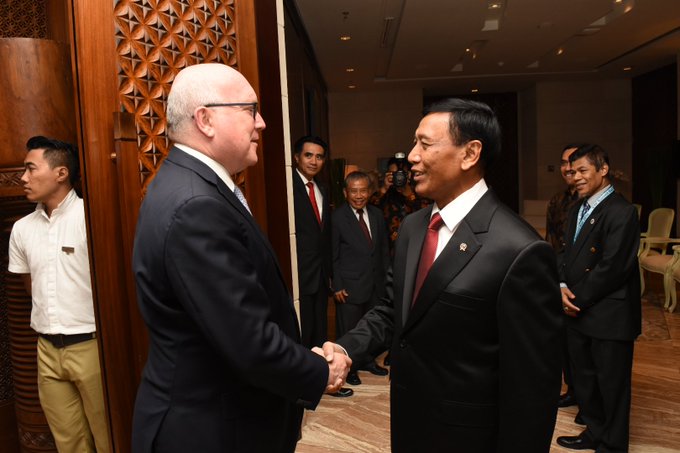Views: 0
Why have those with the ultimate responsibility for the slaying of 1400 Timorese never been brought to justice?
Fonte: East Timor: turning a blind eye to inconvenient truth
East Timor: turning a blind eye to inconvenient truth
Try to picture this: almost every man, women and child forced from their homes, often at gunpoint, usually because of the sheer terror of staying.
Entire towns and villages turned into wastelands.

Everything of value stolen and loaded onto trucks by the military, police or their anointed thugs.
The destruction of East Timor and the brutality inflicted on its people in 1999 after they dared reject Indonesia’s rule was far greater than anybody could imagine.

And UN indictments and documents named the man ultimately responsible: General Wiranto, then commander of the Indonesian Armed Forces.
Under the international law doctrine of superior responsibility, commanders are obliged to take all reasonable measures to prevent crimes from occurring and/or to punish those who perpetrate such crimes.
Commanders who fail to take such measures are criminally responsible for those crimes. But Wiranto has never been brought to account.
Indonesian president Joko Widodo last month appointed him to the powerful position of Co-ordinating Minister for Political, Legal and Security Affairs. This week, Justice Minister Michael Keenan and Attorney-General George Brandis caught up with him at a conference in Bali, as if none of the atrocities had occurred and there is no such thing as the UN indictment.
Attorney-General George Brandis meets Coordinating Minister for Political, Legal & Security Affairs @wiranto1947
Mr Keenan said he was not going to run a commentary on his ministerial colleagues in other countries.
“I don’t think that’s particularly helpful,” he said.
The fledgling government that was formed in East Timor after the Indonesians left the territory never forwarded Wiranto’s indictment to Interpol, meaning he was never put at risk of arrest while travelling abroad.
East Timor’s leaders, Xanana Gusmao and Jose Ramos-Horta, apparently took the realistic view that they couldn’t risk antagonising their giant neighbour, where anger has simmered for years over losing the UN-sponsored independence vote.
Indonesia sent six warships uninvited to the waters off Dili when East Timor celebrated its independence on May 20, 2002, highlighting the potential fragility of the hard-won freedom of what was then the world’s newest nation.
Successive governments in Canberra have largely remained silent on the atrocities committed just over an hour’s flight from Australia’s shores, despite a large volume of evidence against the Indonesian military and its proxy militia forces.
But if Australia wants to have a reasonably health relationship with Indonesia, unpleasant matters need to be dealt with.
In 2001, a UN report by former Australian diplomat James Dunn said a campaign of destruction, deportations and killings were planned by a group of Indonesian military officers two months before the independence vote.
The report said it was inconceivable that Wiranto was unaware of the campaign, which saw more than 250,000 East Timorese transported to West Timor within a fortnight of the vote, a move that required vast military resources.
Indonesia’s Truth and Friendship Commission concluded after a two-year investigation that the Indonesian military, police and government must all share the blame for gross human rights violations carried out by militias and targeting East Timorese independence supporters.
In 2008, former foreign minister Alexander Downer admitted knowing the Indonesian army was behind outbreaks of violence in East Timor but said he and former prime minister John Howard tried their hardest to prevent it.
Wiranto has challenged his accusers to prove the allegations against him.
“I’m hoping that the issues regarding my involvement in cases of human rights violations can be proven in detail,” he said in an Antara report. “I will then offer my explanation to each accusation.”
However if Wiranto was to travel to East Timor he would find people in every village and town who suffered because of the brutality of Indonesian forces under his command during those tumultuous months of 1999.
I would like to ask the co-ordinating minister about the Indonesian soldiers who murdered my Dutch colleague, Sander Thoenes, and cut off his ear as some sort of bizarre souvenir.
What about brave priests who were slain, the women who were raped and the families who were herded like cattle into concentration camps in West Timor, run by pro-Indonesian militia leaders making vile threats to kill anybody who challenged them.
Why have those with the ultimate responsibility for the slaying of 1400 Timorese never been brought to justice?



